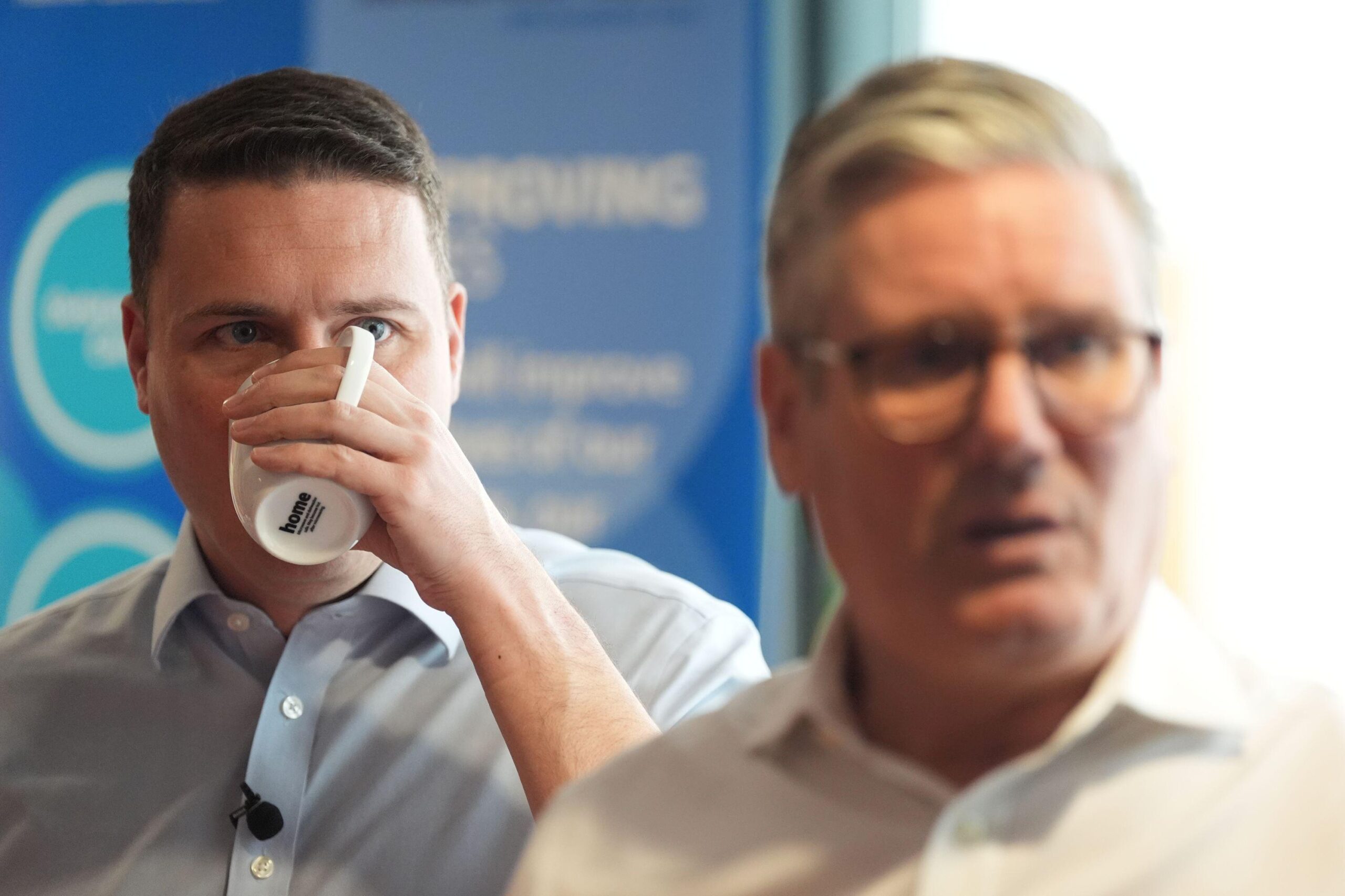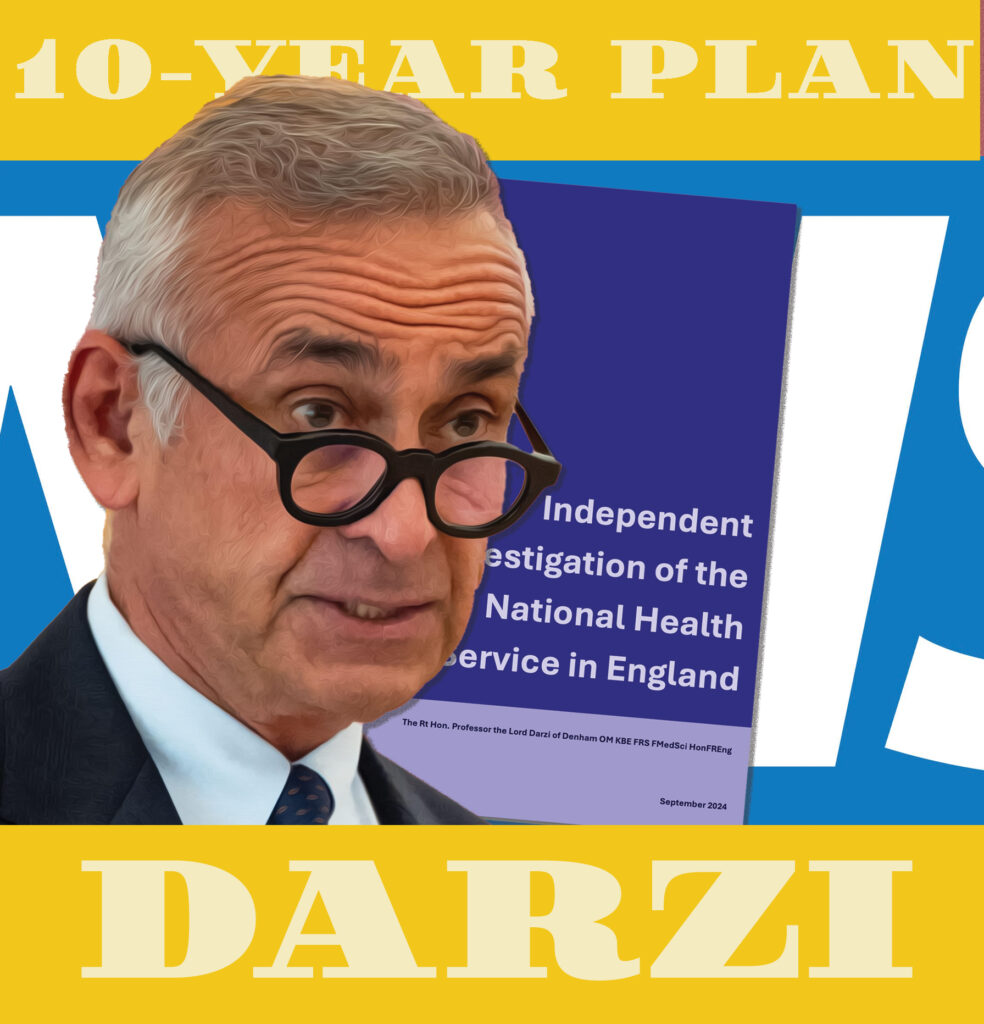In place of fear: ditching the NHS blame culture
The enduring tendency in the NHS to point the finger when something goes wrong can fill clinicians with fear and hamper managers trying to solve problems. Jessica Bradley looks at alternative approaches and asks why the NHS is still struggling to shake off its blame culture after decades of trying.

During the trial of neonatal nurse Lucy Letby last year, it emerged that senior managers at the Countess of Chester Hospital had failed to respond to doctors’ concerns linking Letby to the unexplained deaths of several babies in the hospital’s neonatal unit.
According to Rob Behrens, the health service ombudsman, the doctors’ suspicions were ignored for so long because the NHS’s “defensive culture” puts reputation before patient safety. Too often, he added, clinicians are stigmatised, bullied and threatened when they voice concerns about patient safety.
Charities like Patient Safety Learning have warned that this, along with clinicians’ fear of being blamed if they admit to mistakes themselves, means important lessons are ignored and mistakes get repeated.
Many experts agree that a ‘blame culture’ – where attention is focused on blaming individuals when things go wrong rather than fixing system failings – has been ingrained in the NHS for decades. One BMA survey of almost 8,000 doctors found that 95% were “occasionally” or “often” scared of making a medical error. But it’s far from clear how – or even if – this culture can be changed.
Scared and powerless
A blame culture discourages staff from reporting problems, admitting to mistakes or asking for help because they feel scared or powerless, warns Chris Frerk, a consultant anaesthetist and chair of the Clinical Human Factors Group, a charity which campaigns to improve how the NHS learns from mistakes.
“Fear can lead them to avoid culpability by missing out bits of information in their statements, or saying they don’t know what happened – meanwhile, [they’re] feeling terrible,” Frerk says.
“When they see something that doesn’t seem safe, people on the ground generally don’t feel they have the authority to change it. If they’ve not done something deliberately wrong, they need to develop trust that they won’t be punished before they will start being honest about what’s happened,” he adds.
But silence and inaction can be very dangerous, warns Jayne Chidgey-Clark, national guardian for the NHS. The latest NHS Staff Survey responses “show us that there’s a growing feeling that speaking up in the NHS is futile,” she says. “If people speak up, but don’t feel heard, they might stop talking.”
Unsurprisingly, working in a blame culture can also do psychological harm to both clinicians and managers, and is often linked to bullying, says MiP chief executive Jon Restell. “Most academics who study bullying would say that, if an industry is characterised by overwork, high demand, high risk operations, understaffing and bullying, a blame culture is more or less guaranteed to emerge.
“A lot of managers accused of bullying would say they didn’t want to do it but had no choice, or they don’t have enough time to be kind to people – they’re struggling in a difficult environment,” he adds.
A fair balance
Despite the toxic impact of blame culture, an entirely ‘no-blame’ approach isn’t an ideal alternative, experts say, as it could allow staff to evade responsibility for deliberate wrongdoing.
The widely preferred alternative – recommended by both the Francis and Williams reviews into NHS patient safety – is a ‘just culture’. This approach aims to understand the systemic reasons why something goes wrong and free staff from the fear of being punished for human error. Frerk says a just culture aims to strike a fair balance – so people can still be held to account for deliberate or malicious acts.
It’s 24 years since a review by the then Chief Medical Officer, Liam Donaldson, publicly acknowledged that most errors in the NHS are caused by systemic factors, which the blame culture prevents the service from identifying (see mip.social/donaldson-2000). But the NHS is still struggling to implement a just culture.
NHS England’s Patient Safety Incident Response Framework (PSIRF), published in 2022, is the just the latest in a long line of initiatives aiming to shift how the NHS responds to incidents by emphasising what can be learnt and improved upon. According to the 2019 NHS Patient Safety Strategy, such initiatives are often thwarted by the widespread fear of blame among staff.
Worse still, willingness to tackle culture change in the NHS seems to have been dwindling since the pandemic, warns Rosie Benneyworth, interim head of the Health Services Safety Investigations Body (HSSIB). “While people understand the importance of just culture, the circumstances under which they’re working make it quite difficult,” she says.
Pointing the finger
Restell argues previous attempts to tackle blame culture have failed because of a widespread belief that errors are caused by poor management and bad individuals, rather than the environment, culture and political imperatives within which the NHS operates. This is compounded by persistent under-investment in management functions, he adds.
“We pride ourselves on how few managers we have in the NHS, but if we’ve got a manager covering what used to be two jobs and working 12-hour days with 25% clinical staff shortages, they’re not going to be working perfectly in terms of how they treat people,” Restell says.
While changing an organisation’s culture inevitably takes a long time, some rapid change is possible, Restell adds: “If there could be a sense that mindlessly cutting management costs isn’t a great policy response, the environment would become better and behaviour would improve.”
The way the NHS investigates incidents also perpetuates blame culture, Frerk says. Most hospital staff haven’t got the training or experience to understand scientific investigation methods, and those who do don’t get enough support during investigations.
Benneyworth argues that a just culture also needs to be embedded into staff training from the start. “We need to be educating people around the importance of speaking up when things aren’t going well at the beginning of their careers, as well as being able to talk about things that have gone wrong without feeling like a failure, and the importance of creating time to reflect on things that go wrong,” she says.
From ‘who did it?’ to ‘what happened?”
Before 2016, Mersey Care trust had a high volume of disciplinary investigations – more than half of which resulted in there being ‘no case to answer’.
In 2017, the trust changed the basis for deciding whether a formal investigation was needed, and introduced template documents that encouraged managers to consider alternative approaches. The idea was to shift the emphasis from ‘who did it?’ to ‘what happened?’. And where possible, staff who were the subject of potential investigations were also able to provide information at this early stage.
As a result, in one of the trust’s four clinical divisions the number of disciplinary cases fell by almost two thirds between 2016 and 2017. Find out more about Mersey Care’s just culture approach at: mip.social/merseycare.
Just culture in the skies
The UK’s aviation industry has made huge efforts to move away from a blame culture over the last fifty years. Following the 1972 Staines air disaster which killed 118 people, it emerged that all the contributing issues had occurred before – in isolation – but hadn’t been resolved, says Sean Parker, safety reporting lead at the UK Civil Aviation Authority (CAA).
“If something had been done about these individual problems when they first happened, we would’ve avoided it,” explains Parker, who says he has been having conversations with the NHS about open reporting and a just culture for almost two decades.
The mandatory occurrence reporting system, introduced in 1976, enables staff to self-report safety incidents or concerns while giving them legal protection from any detriment. Aviation professionals who are aware of something that went – or nearly went – wrong, can safely report it to the CAA so it can be learnt from, Parker explains.
A ‘no-blame’ culture was also included in agreements between aviation trade unions and employers, ensuring that staff reporting an incident in this way wouldn’t face any adverse consequences. This no-blame culture subsequently evolved into a ‘just culture’ when it became apparent that some individuals could abuse the system, Parker says.
“People go to work to do a good job, they don’t intend to mess up. There’s no benefit in punishing them, because they beat themselves up enough when things go wrong,” he adds. “We need to understand how we inadvertently set that person up to fail, so that hopefully it won’t go wrong again.”
Safe care is cheaper care
While the culture shift in aviation has undoubtedly been successful, some experts argue there are limits to how far the lessons can be applied to healthcare.
“The culture of speaking up and taking action when people have spoken up” is a vital lesson, says Benneyworth, but a crucial difference is that healthcare can’t simply be stopped if something goes wrong. ”You can ground a fleet of aircraft across the world within minutes but it can take years for learning to be shared in healthcare. We need to get much better with sharing learning internationally,” she explains.
Another reason why the NHS has struggled to adopt a just culture is money, suggests Parker. As a publicly-funded service, the NHS isn’t able to spend money fixing a problem in the same way that airlines and airport operators can.
But in the long-run, it’s more expensive not to implement a just culture, Benneyworth argues. Safe care is cheaper care, she says, while unsafe care can lead to lead expensive litigation claims and poor retention of staff. “If you’re going to look at financial efficiencies, you have to look at safer systems and processes, which will develop efficiencies,” she says.
“If organisations prioritised safety, they’d be far more likely to manage the other demands and challenges facing the NHS. Quite a lot of demand is a result of things not being treated properly the first time,” she adds.
For national guardian Jane Chidgey-Clark, managers have a vital role in shifting the NHS away from a blame culture, but she warns that without adequate support and training they may feel vulnerable, personally criticised or undermined when people do speak up. “Line managers may often be the first port of call that people turn to. In this way, they have a central role in fostering a workplace culture where speaking up, listening and following up are part of everyday life,” she says.
Read more about this
More information on the Civil Aviation Authority’s just culture policy is available at mip.social/caa-just-culture.
Fatal Solution, by Jan M. Davies, Carmella Steinke and W Ward Flemons(2022). The inside story of how a Canadian health system used a tragic error to transform itself and redefine just culture (mip.social/fatal-solution).
NHS England, A Just Culture Guide: Guidelines for managers on implementing a just culture, with case studies and evidence from staff surveys (england.nhs.uk/a-just-culture-guide).
Insights from a Just Culture in practice focus group, NHS England (2021). Report from a focus group of staff from NHS organisations with a successful record of implementing just culture practices (mip.social/just-culture-practice).
Related News
-

Voice, value and vision: what analysts need from the NHS
Data analysts play a vital role in an NHS which is increasingly data-driven and focused on public health trends. But the NHS faces fierce competition for skilled analysts and many feel the health service fails to value them or fully use their talents. Alison Moore reports.
-

It ain’t what you do, it’s the way that you do it
The government’s upcoming ten year plan will try yet again to shift the NHS towards community, digital and prevention. The big question is how, writes Craig Ryan. Try honesty, patience, focusing on what matters and empowering staff and local managers—that’s what gets results.
-

Darzi’s ardent defence of NHS managers offers a fresh start as government embarks on historic reforms
With his blunt dismissal of those who blame managers for the NHS’s troubles, Lord Darzi drew a line under decades of manager-bashing and scapegoating. It’s time to move on and for managers to work hand in glove with clinicians to tackle the real problems facing the NHS, write Jon Restell and Rhys McKenzie.